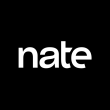Industry Experts Say CFPB’s NPRM Part of Prepaid’s Evolution, Leveling of Playing Field
By Bill Grabarek, Senior Editor
The prepaid industry was well-represented at today’s CFPB field hearing on prepaid accounts in Wilmington, Del. The consensus among industry experts was that the popularity of prepaid products continues to grow and that the NPRM is the next step in the evolution of the industry, as the rules could create a level playing field for prepaid providers. Prepaid panelists invited to provide testimony included Doug Bower, NBPCA executive director; Cecilia Frew, head of U.S. prepaid products, Visa; and Steve Streit, Green Dot founder and CEO.
“Prepaid cards are gaining in popularity because they address an important consumer need—providing secure payments that are safer than cash,” Bower said in his testimony. “Prepaid cards have opened the door to the card-based financial system for many of the approximately 90 million Americans who are unbanked and underbanked.” Bower also cited in his testimony the growing popularity of prepaid cards among younger generations and that the majority of consumers, ages 18-48, surveyed in a Federal Reserve Bank of Philadelphia study said their prepaid cards helped them manage their money better.
Bower tells Paybefore that prepaid’s widespread appeal across several demographics speaks to how useful consumers find prepaid products. “I’ve been in the financial services industry for years—been involved in all types of financial services, businesses and products—and what keeps coming back to me about prepaid is its growth. It’s becoming more mainstream and the customer satisfaction scores are off the charts. And all that speaks to the quality [and] utility of the product.”
Bower says the NPRM will reveal the CFPB’s grasp of the prepaid and its benefits. “Depending on what’s in [the 870-page rule], I think it will be very revealing whether they have all of the nuances of the industry.”
He also hopes once a rule is adopted, it will put an end to allegations that prepaid cards are unregulated. “We like consumer protections because they bring clarity and a unifying force to the market,” Bower says. He noted, however, that the industry already is very heavily regulated.
During her testimony Visa’s Frew spoke of the evolution of prepaid cards from what were one-time-use gift cards to the feature-rich products they are today. “These [CFPB] rules are one more step in that evolution, which will bring clarity to both consumers and the industry,” she said. “Already in market, the majority of Visa prepaid programs have adopted the same consumer protections available on checking and debit cards today,” she said. “In addition, we’ve seen prepaid become more consumer friendly with more simplified fee structures and features and functionality that aid the consumer in the day-to-day management of their money.”
When a customer uses any prepaid card, he deserves to be treated fairly and honestly, to have his money protected the same way any bank accountholder is protected, and he deserves a product that helps and does no harm, said Green Dot’s Streit in his testimony. He and Green Dot support the CFPB’s mission because a “football game without rules or referees is just a brawl,” and a “successful industry also needs rules and referees to ensure fairness, integrity and safety for all participants,” he said.
With the NPRM finally released, Bower tells Paybefore the NBPCA will continue reviewing the rules that were released just hours before today’s field hearing, and “we’ll apply all the muscle of the NBPCA to evaluate everything that’s in that rule and come up with solid guidance for our members.”
He also urges industry members to avoid any knee-jerk reaction to the proposed rules. “It’s very important we listen to and understand all the opinions on our products and how consumers and regulators view them. The industry should take a deep breath and take the time to really digest [the rules] and work with the CFPB moving forward.”
The Bancorp facilitated industry participation in the field hearing this week by using its Wilmington, Del., headquarters as a home base for industry representatives who wanted to attend the meeting.











































